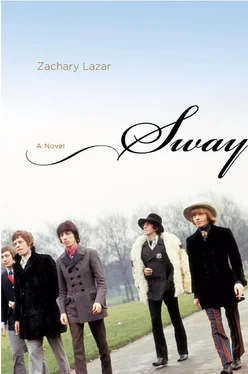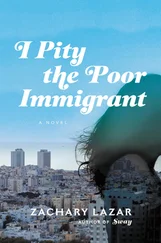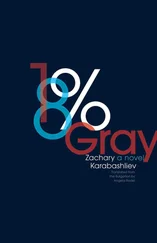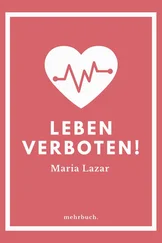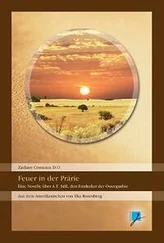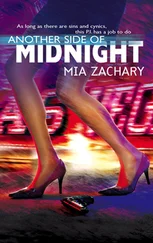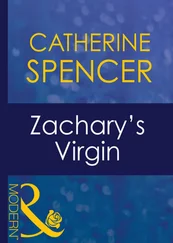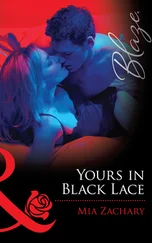He called the film Fireworks . It starred Kenneth as himself, along with a dozen amateur actors dressed in sailor whites, recruited by Francis Coogan. No one, apart from pornographers, had ever made a film so candidly gay. Eventually, it would make its way to Biarritz, France, where it would take first prize at an underground film festival. The judge would be one of Kenneth’s idols, Jean Cocteau, who would find it disturbing and dub it a masterpiece.
It was possible to find antecedents in Picasso’s Demoiselles d’Avignon, or Stravinsky’s Rite of Spring, or so it seemed to Kenneth, who was about to leave America for a new life in France.
His first sight of Paris was obscured by darkness, a vague impression of identical wedges of slate-roofed, six-story buildings. It was damp outside, the streetlights glowing like orbs through the fog. His taxi let him off just before dawn in the sixth arrondissement, outside his hotel, which he found locked for the night.
He took his duffel bag and walked for a while down the old broken sidewalks, looking up at the balcony windows and dark mansard roofs. The city seemed fictitious at that hour, its buildings emptied of people, left to crumble beneath a low oyster-colored sky.
He sat on a bench in the Jardin du Luxembourg and looked out on the empty urns and the white basin of the drained fountain. He had in his front pocket the fan letter he’d received from Jean Cocteau.
Your work astonished me. It comes from that vast darkness from which all true poems emerge.
The sky was whitely dissolving, less blue each time he looked, and the distant roofs, once black, were now dark gray, stained green in places from the runoff of countless rains. The first pigeons cooed and batted their wings. It was easy to forget that his mother had given him the hundred francs and the thin sheaf of traveler’s checks that were in his wallet. He was thinking about his father, how he wished his father could see him in this place, its stone palace and geometric park the furthest thing imaginable from the garage with its table saw and lathe. The leaves of the trees were tinted silver at the edges. They looked as if they’d been requisitioned and carefully altered for the making of a film.
The theater shakes. It feels as if it’s being bombed now — the flickering lights, the dust and sudden calm. Bobby can feel and hear the girders above him shaking, giving way, water pouring down through the ceiling in rivulets, white and blue mist illuminated in the projector light.
A film by Anger
Invocation of My Demon Brother
The next image onscreen is of Bobby himself, his long hair coming down to his shoulders beneath the crown of a black top hat. In the background, someone is holding a noose. Bobby sees himself smoking a skull-shaped pipe. He and a few of his friends — Ron, Carol, Sharon — sit in a circle in the dark, surrounded by candles. One of the girls has painted on her jacket the words LOVE, EVOL, LOVE, EVOL. He sees himself from some earlier time, his arms raised in the green light, his bare torso all muscles and ribs. He sees his face in hallucination, mirrored eight times in a shadowed whirl.
Over the speakers, there is a sound of revving motorcycles. There are pictures of motorcycles in neat rows, motorcycles on mud tracks in the desert, motorcycles being ridden through a crowd of fans on a lawn. The singer, Mick, gestures with his fingers as if to pull an invisible veil over his face, then crouches and stares out into the crowd. Keith leans forward and swings his arm up in a roundhouse, lashing at the strings of his guitar. The film cuts away, and for a moment there is only a red tableau of helicopters, soldiers disembarking in Vietnam, the silhouetted figure of Kenneth Anger dancing in front of them on the stage, shouting. It had been such a long time since Bobby had seen Kenneth that he hadn’t even recognized him at first. It occurs to Bobby that this theater is nothing more than a looping repetition of his own past, a room of caged and suspended time. It occurs to him that this is the kind of place you end up in when you are no longer alive, the space that is not a space at all, the moment that is not a moment because it has no beginning or end.
thanatomania n. 1 condition of homicidal or suicidal mania 2 belief that one has been affected by death magic, the resulting illness.
. . Kenneth became friends with them maybe a year before Brian died. The band were always pushing their luck, and Kenneth would have already seen where that was leading because of this boy he knew in San Francisco, Bobby Beausoleil, who’s now spending the rest of his life in prison. It becomes a kind of craziness, the things Kenneth’s so attracted to. I don’t know if it’s his curse or just the way things are.
— WILL TENNET, filmmaker, interviewed in Dream Plays: A History of Underground Film
MAYBE MONEY AND FAMEwould change everything. Brian had not been home in almost three years. He stood with his girlfriend, Anita, outside his parents’ house now, his blond hair cut in bangs just like hers, their long fur coats falling almost to their ankles. They had gotten high in the back of the limousine, and there was an intensity of recognition he hadn’t counted on: the evergreen shrub inside the iron gate, the white wooden box with its empty milk bottles. He held a cellophane-wrapped gift basket from Harrods behind his back.
His mother answered the door, smiling at him, a little breathless. “Come in,” she said. “I was just getting everything ready.”
In the living room, the windows were covered with lace curtains and framed by heavy, wine-colored drapes. There was an electric fire, two dressers displaying plates and books. His father slowly closed his newspaper above his crossed legs, then folded it in his lap, clearing his throat. Already there was the vague hesitation, the swirl of fear and goodwill.
He put the gift basket on the floor and kissed his mother on the cheek. “Mum,” he said, taking her hand, “this is Anita.”
Jokingly, he held the two women’s hands in his own, as if to join them in marriage. Beneath her coat, Anita wore a paisley minidress. Gold earrings hung just above the ridges of her collarbone and her eyes were outlined in black kohl. She seemed to grow taller and thinner as his mother appraised her.
“We had a lovely drive,” she finally said. “The countryside. You must enjoy living here.”
His mother led them farther into the living room. “Yes, it must make quite a change from London,” she said. “Though to us Cheltenham is rather a large town.”
On the television, there was a formation of Stuka bombers flying through gray banks of clouds. Then a fire brigade trained its hoses on a smoking building whose roof and upper windows were luminous white flashes in a grid of black.
“We’ve just got back from Rome,” said Brian. He was standing near his father’s chair now. His father was looking down at his newspaper as if he’d forgotten something important.
“You drove down from London, did you?” his father said.
Brian looked at the TV. “Yes. Nice drive. A little rain.”
“We’ve brought all sorts of things,” said Anita. “I think I could live for a month on all the things we have here.”
She had picked the basket off the floor and now they all looked at it in her hands. Its little pots and tins of food were obscured by the green cellophane, the basket’s handle crested with a dark green bow.
“Anita’s from Switzerland,” Brian said. “She’s been teaching me German, haven’t you?”
Читать дальше
